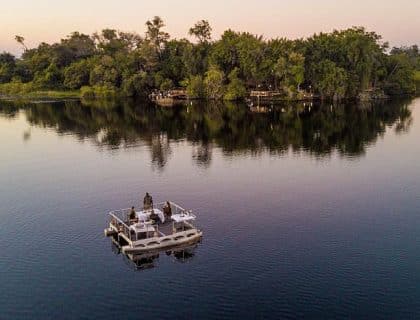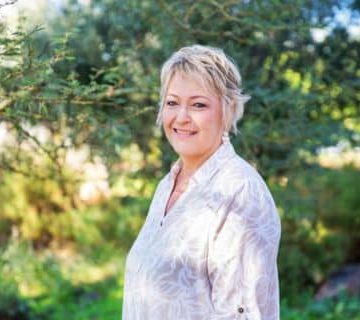Permanent water camps offer game-viewing by boat in the deep channels of the Okavango Delta and game walks on its islands.
Scroll for more
 The permanent water camps of the Okavango Delta are in the north-west and central part of the Okavango Delta. These camps are typically close to deep channels running through the delta. Here watery game viewing is predominantly by motorboat. (As it's often too deep for mokoros to pole.) Plus game walks on the delta’s islands with an experienced, armed guide.
The permanent water camps of the Okavango Delta are in the north-west and central part of the Okavango Delta. These camps are typically close to deep channels running through the delta. Here watery game viewing is predominantly by motorboat. (As it's often too deep for mokoros to pole.) Plus game walks on the delta’s islands with an experienced, armed guide.
These permanent water camps in the Okavango Delta offer a completely different safari experience to the more land-orientated camps. Game-viewing tends not to be as varied, given this predominance of water. But this is offset by the superb birding in these areas, stunning watery landscapes and the opportunity for walking safaris on the islands.
If you have time, we strongly recommend including either a seasonal or permanent water camp alongside a camp which has more of a focus on game drives. Then you get a well-rounded experience of all aspects of the Delta. But we don't recommend a water-based safari camp as your ONLY Okavango delta camp.

Activities in the permanent water camps include walking safaris, boating, fishing on a catch and release basis, as well as mokoro safaris at some lodges (depending on the location) and sometimes game drives (These are in the drier months only and not guaranteed.
Back to main page of Okavango Delta Lodges Botswana
I loved this camp! Comfortable accommodation and I found the camp to be really relaxing. There are probably very few activities that could come close to a mokoro trip in the Okavango Delta. The transition from being a little stressed and tired, to being in such a peaceful environment and the tranquility of the mokoro trip itself was so amazing!
